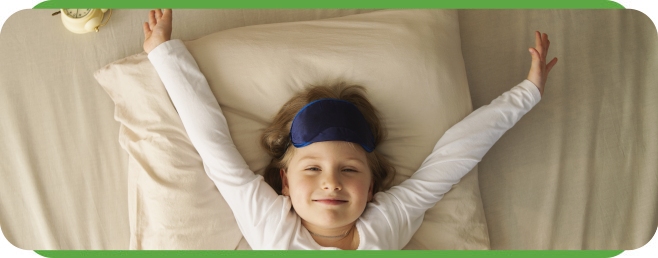Healthy Sleep Habits for Older Children and Teens
Most parents face challenges when their kids struggle with sleep. It is important for children to have a bedtime routine that they follow with consistency. No screen time before bed and a comfortable and quiet space can help your child sleep better. For more tips about healthy sleep, talk to our professionals at Koala Center for Sleep & TMJ Disorders. For more information contact us or book an appointment online. We have convenient locations across the U.S. in Bloomington IL, Peoria/Dunlap IL, El Paso TX, and Wausau WI.


Table of Contents:
What happens when kids and teens lack sleep?
How can parents help kids build healthy sleep habits?
What to know about sleep-disordered breathing?
If your child has bad sleep once in a while, it typically results in crankiness and a lack of alertness the following day. However, if your child or teenager isn’t sleeping consistently, various consequences for their mental and physical health can occur. Children who get insufficient amounts of sleep struggle more with mental and behavioral challenges such as:
– Difficulty self-regulating emotions and impulses.
– Chronic stress and anxiety disorders.
– Depression and irritability.
– Aggression.
– Impaired cognitive functioning, such as problem-solving, memory, focus, alertness, decision-making, and learning.
– Signs of attention-deficit hyperactivity disorder (ADHD), such as an inability to sit still and difficulties in learning environments.
These challenges can cause problems at home, at school, and with peers. Teenagers who are sleep-deprived are more likely to develop a dependence on stimulants, like nicotine and caffeine, as well as partake in riskier behavior than teens who get 7 hours of sleep a night or more. Overall, there are various reasons why getting enough sleep during childhood and adolescence is incredibly important for health and well-being.
To help children and teenagers build healthy sleep habits, parents should keep the following tips in mind:
– Bedtime routine – Creating a bedtime routine is very beneficial for children, as it manages their expectations and helps them wind down at an appropriate time. You can incorporate bath time, story time, and other components into your younger child’s bedtime routine to help them get ready for sleep. If you have a teenager, you should encourage them to turn off electronic devices, take a shower, read or listen to quiet music, and turn out the light at a reasonable time.
– Staying consistent – It’s important to stay consistent with your child’s sleep-wake schedule. Each day, these times should be within 1 to 2 hours of each other, even on weekends and holidays. This prevents major fluctuations in your child’s circadian rhythm and avoids problems with their sleeping patterns.
– Nap lengths – Typically, children stop napping once they are between the ages of 3 and 5. If your child is within this age range and struggles to fall asleep at bedtime, you should limit their daytime naps to 20 minutes and ensure they are taken in the early afternoon at the latest.
– Feeling comfortable – It’s important that your child feels both comfortable and safe in their sleeping environment. Avoiding scary movies, TV shows, or computer games, especially close to bedtime, is strongly recommended. You should also check your child’s bedroom for bright lights or loud noises that could disrupt their sleep.
– Avoid clocks – Some children check the time constantly if they can’t get to sleep, so it’s best to move clocks and watches out of sight from the bed.
– Avoid caffeine – Ensuring your child does not have caffeine late in the day is important for maintaining their sleep routine. Caffeine is found in energy drinks, tea, coffee, many sugary drinks, and chocolate.
If you notice that your child frequently and loudly snores, gasps, snorts, or thrashes in the bed, it could be due to sleep-disordered breathing. Sleep-disordered breathing is also commonly accompanied by bed wetting, mood swings, misbehavior, and poor performance in learning environments. Therefore, it’s important to have these symptoms checked by a specialist as soon as you notice them in your child.
When you notice your child’s symptoms, you should keep track of their frequency and severity. Additionally, you should bring a list of all the medicines, vitamins, and supplements your child takes to the appointment with the sleep professional. This will help the physician during the diagnostic process.
There are various ways in which healthcare professionals can help children who are affected by sleep-disordered breathing, such as medications, the removal of tonsils and adenoids, and positive airway pressure therapy (CPAP). To help your child enjoy better quality sleep and feel their best, schedule an appointment with a provider at the Koala Center For Sleep & TMJ Disorders.

Additional Services You May Need
▸ KoalaKIDZzz®
▸ Sleep Apnea
▸ Snoring
▸ TMJ Disorder
▸ Fatigue
▸ Sleep Disorders
▸ Weight Loss
▸ CPAP Alternative
▸ Oral Appliances




